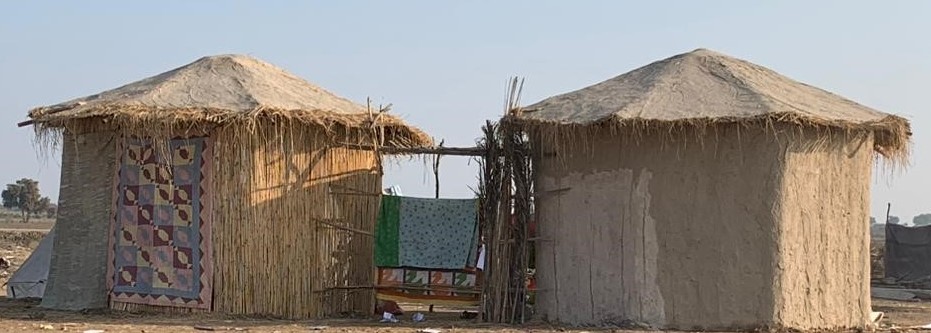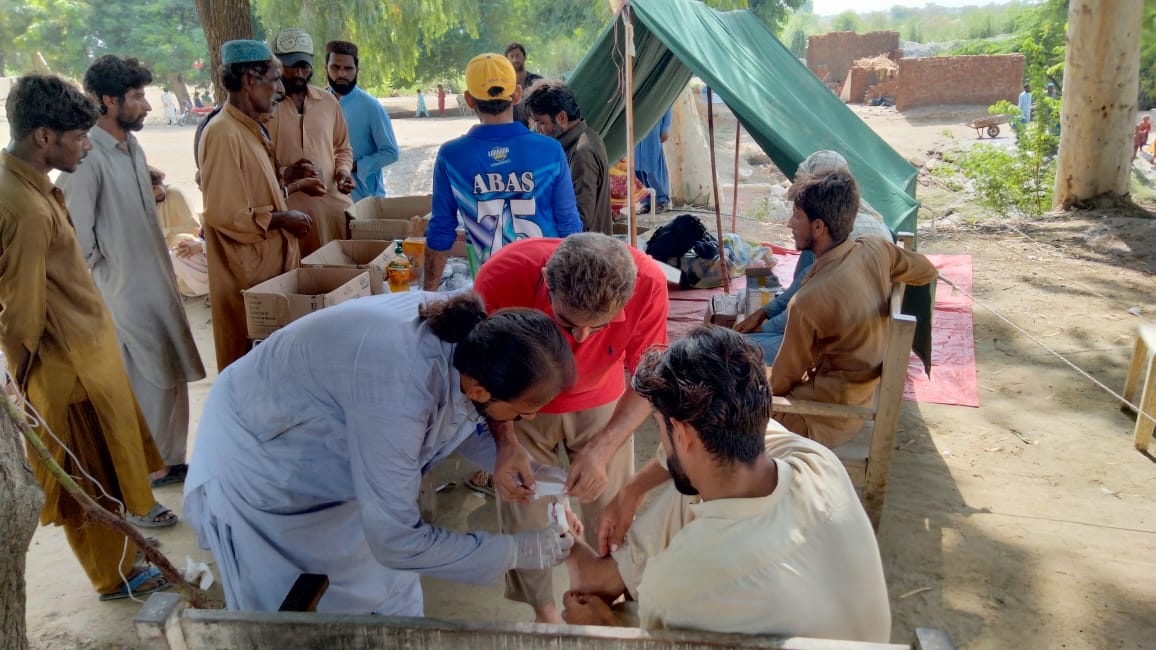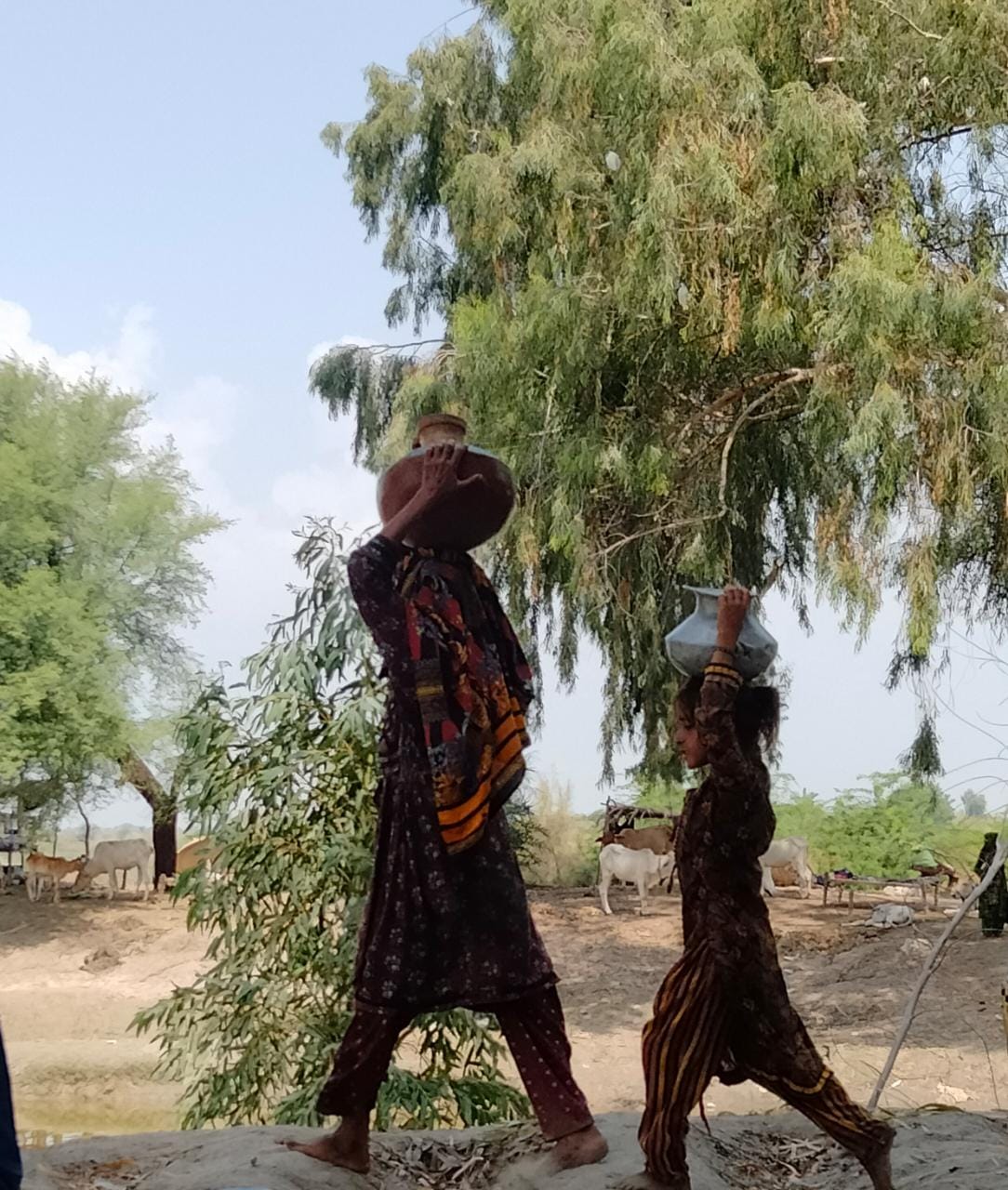Utilizing community Collective strength to help the marginalized and vulnerable

In August 2022, as mega-floods ravaged Pakistan, 19 year old student Maryam Jamali also received a call from her father. Her village was underwater, and her disabled grandmother was being evacuated in a tractor with a tarp protecting her from the monsoon rain. She recounts, “The rest of my community was camped on the canal bank safest for us with no hope for relief or rescue. I felt helpless, alone, and could not see my people surviving.”
However, instead of giving up hope, she started with one tweet what would be the largest mutual aid campaign for flood relief in Pakistan. Back in Jaffarabad, her father and community members had formed a “collective” group of men and women for assessing the needs of the most vulnerable people around them at the largest internally-displaced-peoples’ camp at the time, with 4000+ flood affected people on the bank of Saifullah Magsi Canal.
This campaign for flood relief expanded to 34 districts across the provinces of Sindh and Balochistan, with midwives and young community volunteers forming collectives under the banner of ‘Madat Balochistan’ (Support Balochistan), and providing relief to their communities. Madat Balochistan focused on providing dry ration, tents, medical care, menstrual care products, and birthing kits for pregnant women who were giving birth in the open air.
“We coordinated with the government to divert their efforts to marginalized communities, led rescue efforts in places we couldn’t personally reach, through community volunteers, and made sure that no matter what, flood affected people had a support system.”, says Maryam Jamali, now 20 and leading Madat as a model of locally-led adaptation solutions and community resilience. This step towards inclusion sets this organization apart from others. Jamali attributes this to her indigenous community and their belief that community is vast beyond definitions. Madat’s work with indigenous tribes, dalit communities, marginalized farmers, young women, and community leaders such as midwives is especially commendable given how non-conformist it is.
Unlike other aid-organizations, Madat Balochistan operated with community-first principles. This meant discarding one time universal solutions and exploring alternatives. After relief and rehabilitation, they started a housing project using a model based vernacular architecture conceptualized by Architect Yasmin Lari, founder of The Heritage Foundation which is currently working with various organizations to implement their model. This model was specifically chosen by the collective and its members for its resilience, zero-carbon foot-print, and cost-friendliness. This collective, led by Jamali, now consists of midwives, mothers, young women, and female tribal elders as the lead decision-makers, while logistical tasks are mainly delegated to the men. In tribal Balochistan, especially Jaffarabad where patriarchy prevails the most, this is a first, and a hallmark step towards gender equitable decision-making.
So far, the organization reports that they have built 250+ homes in their immediate area financed by mutual-aid and crowd-funding, and plan on expanding the project to more flood-affected communities with the same leadership model.







